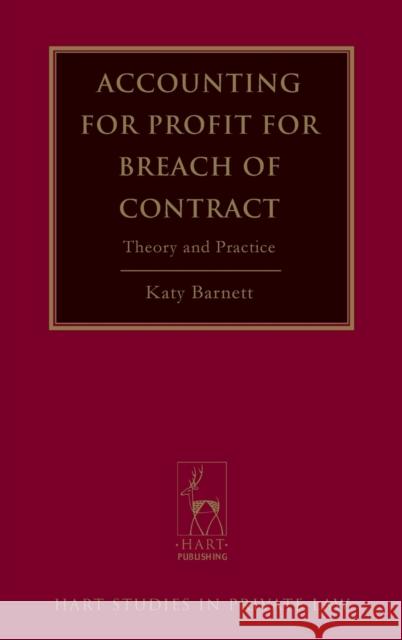Accounting for Profit for Breach of Contract: Theory and Practice » książka
Accounting for Profit for Breach of Contract: Theory and Practice
ISBN-13: 9781849462518 / Angielski / Twarda / 2012 / 256 str.
This book defends the view that an award of an account of profits (or 'disgorgement damages') for breach of contract will sometimes be justifiable, and it fits within the orthodox principles and cases in contract law. However, there is some confusion as to when such an award should be made. The moral bases for disgorgement damages are deterrence and punishment, which shape the remedy in important ways. Courts are also concerned with vindication of the claimant's performance interest, and it is pivotal that the claimant can procure a substitute performance via an award of damages or specific relief. The book argues that disgorgement damages should be available in two categories of case: 'second sale' cases, where the defendant breaches his contract with the claimant to make a more profitable contract with a third party; and 'agency problem' cases, where the defendant promises the claimant he will not do a certain thing, and the claimant finds it difficult to supervise the performance. Moreover, disgorgement may be full or partial, and 'reasonable fee damages' for breach of contract are best understood as partial disgorgement rather than 'restitutionary damages.' Equitable bars to relief should also be adopted in relation to disgorgement damages, as should allowances for skill and effort. Accounting for Profit for Breach of Contract will be of interest to contract and commercial lawyers, and it will be especially valuable to anyone with an interest in contract remedies and restitution. The book draws on case law in a number of common law jurisdictions, primarily England, Wales, and Australia. (Series: Hart Studies in Private Law)











